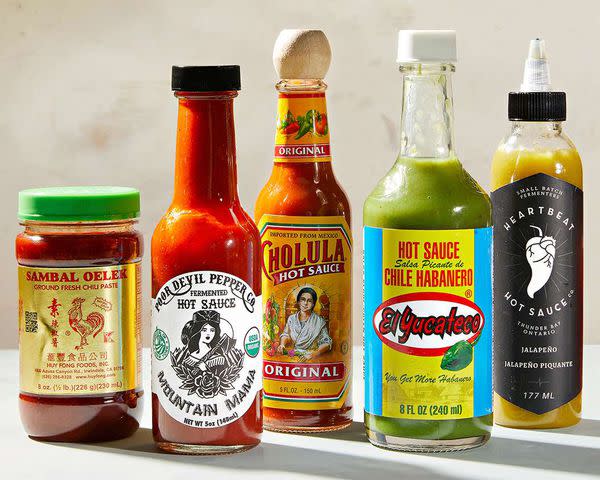8 Foods You Aren't Refrigerating—but Definitely Should
Learn which common foods to move from your pantry into your fridge.

When you come home from the grocery store, one of the first things you do is put away the foods that live in the fridge. Eggs, milk, and butter quick are quickly returned back into the chill to ensure safety and increase longevity. But what about items like almond butter or the packaged tortillas for taco night? As it turns out, there might be a few foods that wind up in your pantry when they should really be in your fridge.
It's important to identify the items you might be storing incorrectly. "Never challenge nature, and store products correctly as soon as you buy or harvest them," says Yannick Tirbois, culinary instructor at Le Cordon Bleu. Certain foods that contain high amounts of water, sugar, fat, and protein and also have low acidity or salt concentrations can quickly spoil from yeast, mold, and bacteria, adds food scientist Bryan Quoc Le, Ph.D.

It's also key to take note of any foods that were not refrigerated when you bought them, but should be after they are opened. Items like salad dressing and tomato sauce can be stored stored at room temperature on a pantry shelf, but shouldn't be returned there after that seal is broken. At that point, give them their rightful place in your fridge.
Ahead, Le, Tirbois, and Katie Macarelli from Natural Grocers share the common foods you probably aren't refrigerating, but should.
Related: Food Storage Mistakes to Avoid
Foods You Should Always Refrigerate
The U.S. Department of Agriculture (USDA) estimates that about 30 to 40 percent of all food in the U.S. goes to waste annually, costing a family of four as much as $1,500 per year and contributing to the climate crisis. It's time to reverse that trend and save yourself some money by storing foods properly. Here are some of the most common foods that you might not realize should be stored in the refrigerator.
Hot Sauce

Hot sauce is a big category. How you store it really comes down to what the hot sauce is made from and how quickly you plan to consume it. If it happens to contain cream or eggs, which some homemade hot sauces do, it needs to be in the fridge, says Tirbois. For other hot sauces, even those made with vinegar, storing it in your pantry likely won't lead to food safety issues, but you'll want to refrigerate your favorite hot sauce after opening to preserve its flavor and prevent it from spoiling. Le says that hot sauces can suffer spoilage after one to two months unless they are fermented or contain high levels of salt.
"For example, Tabasco can last for up to six months outside of the refrigerator for optimum quality, and can still keep its kick for several years," says Le. "That's because Tabasco goes through a special aging process where the chili mash is salted and kept in oak barrels for three years, which reduces the concentration of available sugars and other nutrients while at the same time creating a microbiological environment that preserves the sauce."
Unless you want to spend a lot of time reading your hot sauce labels, the safest way to keep your sauce fresh and with its usual flavor punch is to store it in the fridge.

 Yahoo Autos
Yahoo Autos 